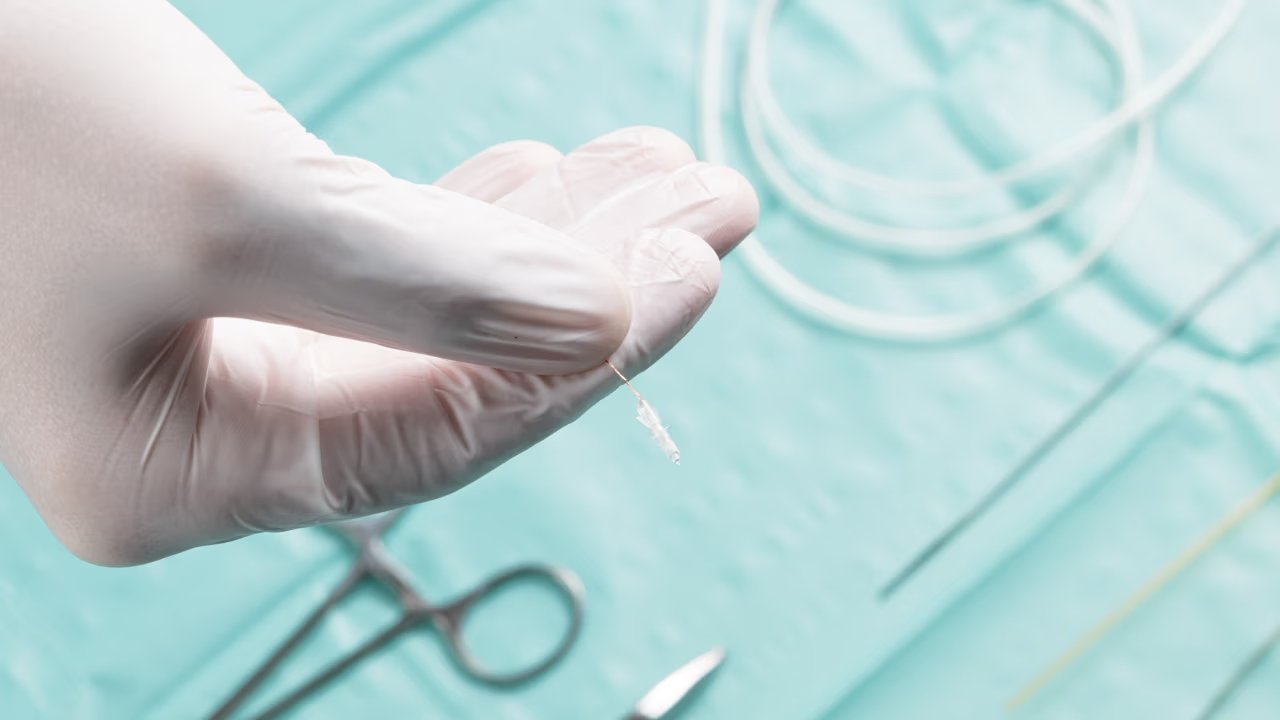French robotic medtech Robeauté has raised $28 million funding for its neurosurgical microrobots.
Neurological disorders are difficult to diagnose in the early stages when intervention can have the most impact.
Modern neurosurgery still relies on relatively crude methods, with stiff tools pushed through the brain in a straight line, impeding multi-site access and precise targeting. Meanwhile, pharmaceutical treatments struggle to make an impact due to the complexities of crossing the blood-brain barrier to reach the site of interest.
The size of a grain of rice, Robeauté’s microrobots can move along curved routes through the extracellular matrix to safely reach multiple sites of interest and carry out whichever task is required locally. The tiny, modular medical devices can embark on specific missions depending on the pathology, making them the ideal tool to deliver molecules, implant an electrode and collect cell or live-data samples through sensors to transform our understanding and ability to treat neuropathologies.
Founder Bertrand Duplat spent 30 years in robotics, including at McGill University in Montreal and the European Space Agency (ESA), specialising in developing robots in extreme environments. He founded a 3D software company, Virtools (sold to Dassault Systèmes), before starting Robeauté with co-founder Joana Cartocci, an operations specialist, when his mother was diagnosed with glioblastoma.
Over the past eight years, the team has established over 50 patents and unique know-how from creating and assembling into the carrier a tiny engine, propeller, steering and tracking device, enabling surgeons to monitor the microrobot’s movement through the brain and account for every microsecond.
The technology is currently in animal studies as a biopsy tool that will lay the groundwork for later treatment and real-time monitoring, which will be achieved through partnerships with industrial partners and research labs.
According to Bertrand Duplat, co-founder and CEO of Robeauté, there is unexplored potential for microrobots in medicine:
“Current neurosurgery techniques are invasive and can be fatal, whilst it is difficult for treatment to pass the blood-brain barrier and get to its intended target.
We’re creating microrobots that will bring unparalleled access to the brain with personalised, precision medicine that can transform treatments and patient outcomes.”
Over the past eight years, the team has filed over 50 patents and commenced animal trials.
Joana Cartocci, co-founder and COO of Robeauté, said:
“We’re building the microrobots that will enable a radical paradigm shift in how we approach neurosurgery and dialogue with the brain.
We like to think of our microrobot as a brain gardener, that can tend to the pathological organ from within, with a standard carrier that can be adapted to fit a variety of extensions."
The company’s first application is advanced biopsy, but from there, the potential is limitless due to safe access and unprecedented site-specific data.
Plural, Cherry Ventures and Kindred Ventures led the funding, which included LocalGlobe, Think.Health and previous investors APEX Ventures participated, along with strategic investment from Brainlab.
According to Ian Hogarth, partner at Plural, Robeauté's technology doesn’t just have the potential to transform neurosurgery — it could also fundamentally change how drug companies find the best solutions for patients.
"Gathering patient brain data will teach us more about diseases that are often incurable, enabling more personalised treatment.
I strongly believe that Robeauté’s miniature robots could transform brain treatments in the same way the endoscope has transformed gastrointestinal medicine, for a part of our body that is so vital to our quality of life."
Filip Dames, Founding Partner at Cherry Ventures, said:
“The challenge posed by neurodegenerative diseases is immense, touching countless lives across the globe. What Robeauté is building truly embodies the spirit of frontier technology.”
The new funding will be used to continue developing the technology, starting human trials in 2026 and setting up US operations ahead of FDA approval and full go-to-market.
Lead image: Robeauté.



Would you like to write the first comment?
Login to post comments